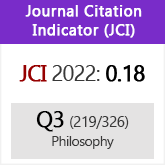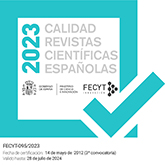Filosofía Experimental y Economía Experimental: un enfoque híbrido
DOI:
https://doi.org/10.3989/isegoria.2014.051.05Palabras clave:
Competencia conductual, Competencia lingüística, Psicología experimental, Intuiciones conceptualesResumen
En este artículo presentamos las principales corrientes de la Filosofía Experimental y atendemos a una de las críticas más severas a la que se ha sometido este reciente programa de renovación metodológica. Según Antti Kauppinen la Filosofía Experimental está condenada al fracaso porque no puede obtener mediante sus métodos el tipo de intuiciones que interesan a los filósofos –las intuiciones robustas del hablante competente. Aun aceptando parte de las críticas de Kauppinen, en este artículo sostenemos, en primer lugar, que la supuesta incapacidad de la Filosofía Experimental para acceder a las intuiciones robustas de los hablantes tiene que ver en gran medida con los métodos experimentales empleados hasta ahora por los filósofos experimentales. En segundo lugar, defendemos que el proyecto de reforma llevado a cabo desde la Filosofía Experimental resultará viable solo si se adoptan una serie de consejos metodológicos procedentes de la economía experimental. Únicamente entonces podrán los experimentalistas responder con éxito a la objeción de Kauppinen.
Descargas
Citas
Adams, F. y Steadman, A. (2004). "Intentional Action in Ordinary Language: Core Concept or Pragmatic Understanding?", Analysis 64, pp. 173-181 http://dx.doi.org/10.1093/analys/64.2.173
Aguiar, F., Gaitán, A. y Rodríguez López, B. (2014), "Robust Intuitions, Experimental Ethics and Experimental Economics: Bringing Reflective Equilibriun into the Lab" en C. Luetge, H. Rush y M. Uhl (eds.), Experimental Ethics. Toward an Empirical Moral Philosophy, Nueva York, Palgrave.
Alexander, J. (2012), Experimental Philosophy. An Introduction, Londres, Polity Press.
Alexander, J. y Weinberg, J. (2007), "Analytic Epistemology and Experimental Philosophy, Philosophy Compass 2, pp. 56-80. http://dx.doi.org/10.1111/j.1747-9991.2006.00048.x
Appiah, K. A. 2008. Experiments in Ethics, Harvard, Harvard University Press.[Experimentos de ética, Madrid, Katz Editores]
Bardsley, N, Cubitt, R, Loomes, G., Moffrat, P., Starmer, Ch. y Sudgen, R. (2010), Experimental Economics. Rethinking the Rules, Princeton, Princeton University Press.
Cullen, S. (2010), "Survey-Driven Romanticism", Review of Philosophy and Psychology 1, pp. 275-296 http://dx.doi.org/10.1007/s13164-009-0016-1
Devitt, M. (1994), "The Methodology of Naturalist Semantics", The Journal of Philosophy 91, pp. 545-572. http://dx.doi.org/10.2307/2940802
Diamond, P. y Vartianen, H. (2008, eds.), Behavioral Economics and Its Applications, Princeton, Princeton University Press.
Elgin, C. (1996), Considered Judgment, Princeton, Princeton University Press.
Fehr, E. y Fischbacher, U. (2003). "The Nature of human altruism" Nature 425, pp. 785-791. http://dx.doi.org/10.1038/nature02043 PMid:14574401
Fehr, E. y Gätcher, S. (2002), "Altruistic punishment in humans" Nature 415, pp. 137-140. http://dx.doi.org/10.1038/415137a PMid:11805825
Frohlich, N. y Oppenheimer, J. (1993), Choosing Justice. An Experimental Approach to Ethical Theory, California, California University Press.
Guala, F. (2005), The Methodology of Experimental Economics. Cambridge University Press. http://dx.doi.org/10.1017/CBO9780511614651 PMCid:PMC1315318
Guala, F. (2008), "Paradigmatic Experiments: The Ultimate Game from Testing to Measurement Device, Philosophy of Science 65, pp. 658-669. http://dx.doi.org/10.1086/594512
Haidt, J. (2001). "The emotional dog and its rational tail: A social intuitionist approach to moral judgment", Psychological Review 108, pp. 814-834. http://dx.doi.org/10.1037/0033-295X.108.4.814 PMid:11699120
Haidt, J. (2012). The Righteous Mind, Nueva York, Allen Lane.
Hauser, M. (2007). Moral Minds. The Nature of Right and Wrong, Nueva York, Harper & Collins.
Hertwig, R. y Ortmann, A.(2001), "Experimental practices in economics: A methodological Challenger for psychologists? Behavioural and Brain Sciences 24, pp. 383-451. PMid:11682798
Jackson, F. (2000), From Metaphysics to Ethics. A Defence of Conceptual Analysis, Oxford, Oxford University Press. http://dx.doi.org/10.1093/0198250614.001.0001
Kahneman, D. y Tversky, A. (2000, eds.), Choices, Values, and Frames, Cambridge, Cambridge University Press.
Kauppinen, A. (2007), "The Rise and Fall of Experimental Philosophy", Philosophical Explorations 10, pp. 95-108 http://dx.doi.org/10.1080/13869790701305871
Kimmel, A. (1998), "In defense of deception". American Psychologist 53, pp. 803-805. http://dx.doi.org/10.1037/0003-066X.53.7.803
Kornblith, H., (2002), Knowledge and its Place in Nature, Oxford, Oxford University Press. http://dx.doi.org/10.1093/0199246319.001.0001
Kornblith, H.(2007), "Naturalism and Intuitions", Grazer Philosophische Studien 72, pp. 27-49. http://dx.doi.org/10.1163/9789401204651_003
Knobe, J. (2003),"Intentional Action and Side-effects in Ordinary Language", Analysis 63, pp. 190-194. http://dx.doi.org/10.1093/analys/63.3.190
Knobe, J. (2006), "The Concept of Intentional Action: A Case Study in the Uses of Folk-Psychology", Philosophical Studies 130, pp. 203-231 http://dx.doi.org/10.1007/s11098-004-4510-0
Knobe, J. y Nichols, S. (2008), "An Experimental Philosophy Manifiesto" en Knobe, J. y Nichols, S. (eds). 2008, Experimental Philosophy, Oxford, Oxford University Press.
Liao, M.(2008), "A Defence of Intuitions", Philosophical Studies 140, pp. 247-262 http://dx.doi.org/10.1007/s11098-007-9140-x
Machery, E., Mallon, R. Nichols, S. y Stich, S. (2004), "Semantics, cross-cultural style" Cognition 92 (3), pp. 1-12. http://dx.doi.org/10.1016/j.cognition.2003.10.003 PMid:15019555
Machery, E. y O'Neill, E. (2014 eds.), Current Controversies in Experimental Philosophy, Londres, Routledge.
Margolis, E. y Lawrence, S. (1999, eds.), Concepts: Core Readings, Cambridge, MIT Press.
Morton, R. y Williams, K. (2010) Experimental Political Science and the Study of Causality, Cambridge, Cambridge University Press. http://dx.doi.org/10.1017/CBO9780511762888
Nadelhoffer, Th. y Nahmias, E. (2007), "The Past and Future of Experimental Philosophy", Philosophical Explorations 10, pp. 123-149. http://dx.doi.org/10.1080/13869790701305921
Nichols, S., Stich, S. y Weinberg, J. (2003), "Metaskepticism: Meditations in ethno-epistemology" en Luper, S. (ed). The Skeptics, Burlington, Ashgate.
Nichols, S. (2004), "Folk Concepts and Intuitions: From Philosophy to Cognitive Science", Trends in Cognitive Sciences 8, pp. 514-518. http://dx.doi.org/10.1016/j.tics.2004.09.001 PMid:15491906
Nichols, S. (2004a), Sentimental Rules, Oxford, Oxford University Press. http://dx.doi.org/10.1093/0195169344.001.0001
Norenzayan, A. y Schwarz, N. (1999), "Telling what they want to know: Participants tailor causal attributions to research's interests", European Journal of Social Psychology 29, pp. 1011-1020. http://dx.doi.org/10.1002/(SICI)1099-0992(199912)29:8<1011::AID-EJSP974>3.0.CO;2-A
Petrinovich, L. y O'Neill, P. (1996), "Influence of Wording and Framing Effects on Moral Intuitions, Ethology and Sociobiology 17, pp. 145-171. http://dx.doi.org/10.1016/0162-3095(96)00041-6
Pettit, P. (1993), The Common Mind, Oxford, Oxford University Press. PMCid:PMC265603
Prinz, J. (2008), "Experimental Philosophy and Philosophical Intuition", en Knobe, J. y Nichols, S. (eds). 2008, pp. 231-240.
Scholl, B. (2014). "Two Kinds of Experimental Philosophy (and their methodological dangers)", http://xphi-europe.org/publikacje/SchollMethodologyNotes.pdf, consultado el 26 de septiembre de 2014.
Schwarz, N., (1996), Cognition and Comunication: Judgment Biases, Research Methods, and the Logic of Conversation, Mahwah, Erlbaum.
Schwarz, N. (1999), "What Respondents Learn From Questionnaires: The Survey Interview and the Logic of Conversation", International Statistical Review 63, pp. 153-168. http://dx.doi.org/10.2307/1403610
Smith, M. (1994), The Moral Problem, Oxford, Blackwell.
Strawson, P. (1992), Analysis and Metaphysics, Oxford, Oxford University Press. http://dx.doi.org/10.1093/acprof:oso/9780198751182.001.0001
Swain, S. Alexander, J. Weinberg, J. (2008). "The Instability of Philosophical Intuitions: Running Hot and Cold on Truetramp", Philosophy and Phenomenological Research 76, pp. 138-155. http://dx.doi.org/10.1111/j.1933-1592.2007.00118.x
Weinberg, J. Nichols, S. y Stich, S. (2001), "Normativity and Epistemic Intuitions" Philosophical Topics 29 (1/2), pp. 429-460. http://dx.doi.org/10.5840/philtopics2001291/217
Weinberg, Jonathan M., Shaun Nichols, and Stephan Stich. (2006), "Normativity and epistemic Intuitions", en R. Viale, D. Andler y L. A. Hirschfeld (eds.) Biological and cultural bases of human inference, Mahwah, Lawrence Erlbaum.
Weinberg, J. (2007), "How To Challenge Intuitions Empirically Without Risking Skepticism", Midwest Studies in Philosophy 31, pp. 318-343. http://dx.doi.org/10.1111/j.1475-4975.2007.00157.x
Descargas
Publicado
Cómo citar
Número
Sección
Licencia
Derechos de autor 2014 Consejo Superior de Investigaciones Científicas (CSIC)

Esta obra está bajo una licencia internacional Creative Commons Atribución 4.0.
© CSIC. Los originales publicados en las ediciones impresa y electrónica de esta Revista son propiedad del Consejo Superior de Investigaciones Científicas, siendo necesario citar la procedencia en cualquier reproducción parcial o total.Salvo indicación contraria, todos los contenidos de la edición electrónica se distribuyen bajo una licencia de uso y distribución “Creative Commons Reconocimiento 4.0 Internacional ” (CC BY 4.0). Puede consultar desde aquí la versión informativa y el texto legal de la licencia. Esta circunstancia ha de hacerse constar expresamente de esta forma cuando sea necesario.
No se autoriza el depósito en repositorios, páginas web personales o similares de cualquier otra versión distinta a la publicada por el editor.














